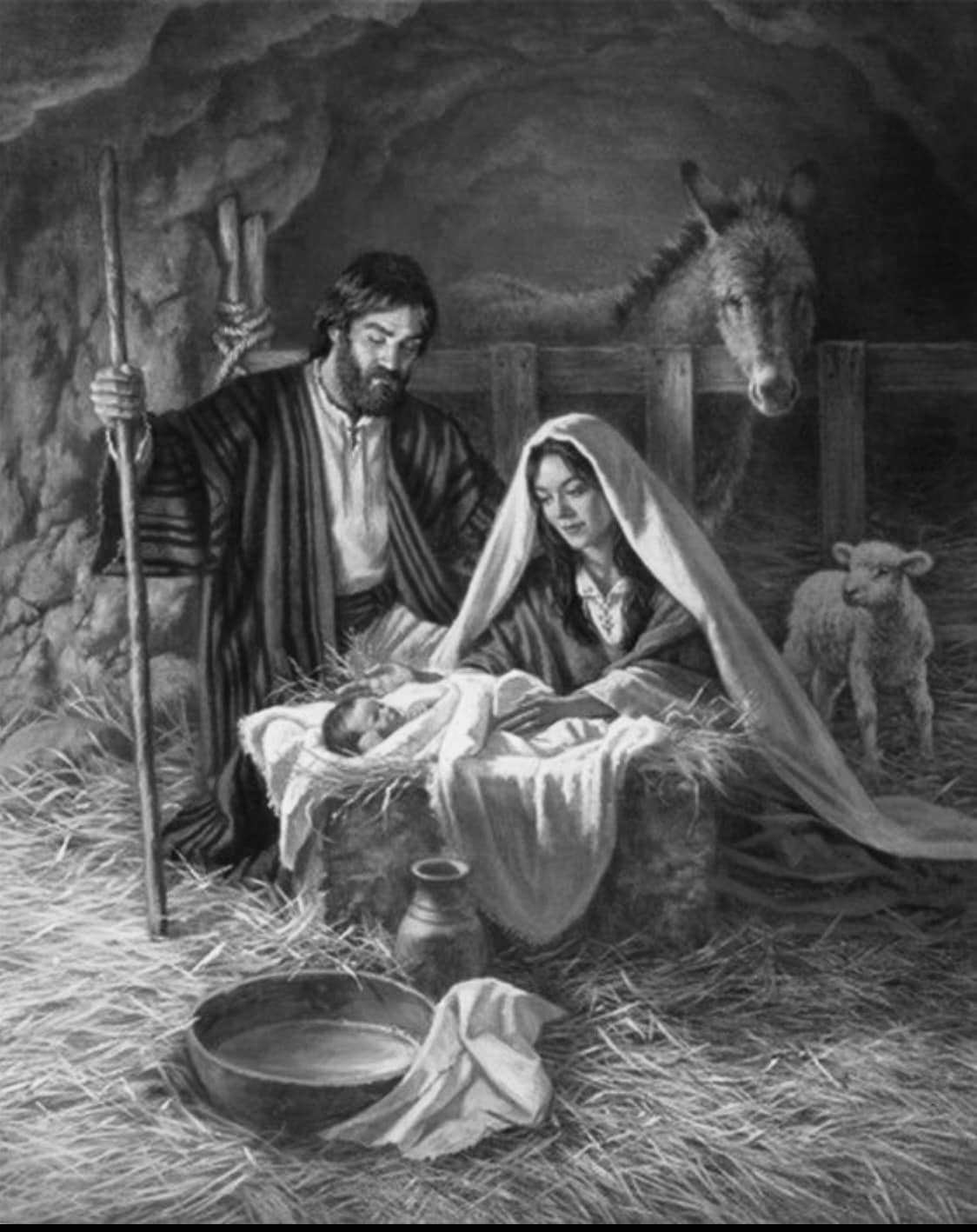279 total views


Matthew opens his gospel with a genealogy linking Abraham and David with the Messiah and from here prepares his readers to expect an unusual birth narrative. And when viewed in the Mediterranean cultural context, (where betrothal and the taking of the bride to the bridegroom’s house are the two parts, the beginning and the ending, of the legal process of marriage), all the more Jesus’ conception and birth take on unusual contours.
Focusing on Joseph, the main protagonist in this part of the gospel, (Mt 1:18f) he found himself in a difficult predicament, if not an embarrassing situation. The honor code of the Mediterranean world demands that no one take what properly belongs to another. Mary’s child is not Joseph’s, so he hesitates to take it. He also knows that he will be unable to display publicly the “tokens of virginity” on his wedding night, (Dt 22:13-21). If he doesn’t act quickly he will be shamed. By law, Joseph is to return Mary to her father and expose her to death, (Num 5:11-31). But Joseph is a righteous man.
The word “dikaios” ( δίκαιος ) in NT is an adjectival form and is also used nominally with the primary meanings “righteous” and “just”, the two overlapping in meaning in many occurrences. Like the OT term “tsaddîq”, it refers to moral purity, or uprightness, i.e., conformity to the law covenant as well as to a judicial pronouncement of right standing before God. Contemporary usage in Josephus the historian shows that the Greek term means “one obedient to the commands of God, an upright man, a man of character. (Theologically speaking, it refers to God’s action as a consequence of the atoning work of Christ, Rom 5:19).
Joseph is such a person; so he decides to divorce Mary quietly, i.e., in the presence of chosen witnesses, without public scandal. His sense of honor hopes that the rightful father will seize this opportunity to claim the Child and marry Mary. In all of his decision, Joseph acts very honorably. And with the direct revelation, here in a dream, what is hidden in the plan of God is made known. God personally announces to Joseph the gender of the child (a highly prized male is a special gift of God in this culture) and assigns his name (Jesus). This fact immediately immerses Jesus in honor far surpassing human calculation and further enhances Joseph’s honorable reputation, for God would honor a righteous person. Through persons like him, the plan of God is accomplished and God’s presence is made manifest in the world, (Immanuel).
St. Joseph, Guardian of the Redeemer, and Spouse of the Blessed Virgin Mary, guide us in the path of life and defend us from every evil. Amen.
May we all be like St Joseph, truly upright and righteous before God and before men. St. Joseph,
Christmas Dawn (Lk 2:15-20)
s1S#11 Bethlehem
“Oh little town of Bethlehem …” so goes the song. Jesus was born in the little town of Bethlehem, בֵּֽית־לֶ֣חֶם, Beyt-lechem, (cf. Lk 2:4; Mt 2:5-6). It is but fitting that the Messiah should be born in the city from which King David hails, (1Sam 16:1;17:12), and the place of his annointment as king (16:4-13). Earlier the town figures prominently in the story of Ruth, the great grandmother of David. The birth of Jesus took place in Bethlehem in fulfillment of a prophecy of Micah: “But you, Bethlehem-Ephrathah least among the clans of Judah, from you shall come forth for me one who is to be ruler in Israel; whose origin is from of old, from ancient times.” (5:1; cf John 7:42). This Davidic lineage of Jesus, the Messiah and Savior King, is further affirmed when the first family moved to the tiny village of Nazareth where Jesus spent most of his childhood, (Mt:2:23, 13:54; Lk 2:4, 4:16), a place quite insignificant that it was not mentioned in the Old Testament, (thus, not surprisingly, his origins are held up to scorn by those skeptical of his mission cf.John 1:46).
The name Beyt-lechem, means “house of bread”. Years later, Jesus multiplied loaves of bread on several ocassions to feed thousands of people, (attested to by all the gospels, e.g. Mark 6:44) and declared “I am the bread of life; whoever comes to me will neve hunger and whoever believes in me will never thirst” (John 6:35). Taking up this motiff, one could connect it to the circumstance sorrounding his birth, that he “was laid in a manger because there was no room for them in the inn” (Lk 2:7,12). It could be an allussion to the accusation of Prophet Isaiah against the people of Israel who failed to recognize and respond to God’s plan: “an ox knows its owner, an ass its master’s manger; but Israel does not know, my people has not understood” (Is 1:3). Christ, indeed, “came to what was his own, but his own people did not accept him” (John 1:11).
Jesus was born in Bethlehem, in a manger. He is the bread that comes down from heaven, the food that gives eternal life. As we celebrate his coming may we all be truly nourished by providing him ‘a room in the inn’ of our hearts, not only on Christmas but everyday, whenever we receive him spiritually or sacramentally in the Holy Eucharist. And in turn may we become “bread” (in all senses) to others in the midst of pandemic and especially to the ‘lost, the last and the least’ of our society.
Christmas Day (John 1:1-14)
s1S#117 The Word
Isaiah’s announcement of salvation in the restoration of Zion and the comforting of God’s people was, in the words of the letter to the Hebrews, fragmentary and partial, (cf readings during the day of Christmas: Is 52:7-10; Heb 1:1-6). The way in which human redemption was ultimately realized was truly God’s “last word”, definitive and non-repeatable, where John in his prologue traced it back forcefully to the eternal presence of Christ with the Father identifying the Word clearly with God, from the dawn of creation, (John 1:1-5), to the Word’s self-presentation in the world, (v10f) and finally the Incarnation, definitely referring to the pre-existent Word’s appearance in human form, (v14f).
The word “ logos “ (λόγος) in the NT,
(”dabar” in OT), ordinarily refers both to human utterances and that of God, in the basic sense of the ‘word(s), or saying, even speech’. When attributed to the Lord, it constitutes a technical expression of divine revelation. In the OT it is revealed to the patriarchs, (Gen 15:1; to Joshua, (8:27), and commonly to the prophets. It is also found in the law of Moses in the context of binding instructions, (Num 3:16; 15:31). In NT, the “words”, whether referring to the disciples or most specifically to Jesus, are indicated in the context of preaching and teaching, (Mt 7:24f; Mk 10:24; Lk 4:32f; John 2:22). But in particular, the person of Christ, identified as “the Word”, is equated with God the divine being, (John 1:1, 14; 1 John 1:1; Rev 19:13), the revealer par excellence of the Father.
What John has in his prologue may not be a “historical presentation” of facts as Matthew and Luke narrated it but it was a warm and engaging presentation in the symbolic form of what Jesus meant. Taken together Jesus’ birth presents some interesting questions: what are the historical circumstances, the when, etc; the answer to all these is “very little”. But it does not really matter. The readings are at one in proclaiming salvation. Sin is vanquished and God has come among us in human form. They relate the basic idea. The Son of God comes as man, born in simple circumstances to save us and bring us home. That is Christmas.
Before this mystery, we reflect in awe and wonder:
“Heaven cannot contain Him,
Nor the bounds of earth,
Yet, oh glorious mystery!
Virgin gives him birth.
Now the light ariseth,
In the darkened skies.
Now the proud are humbled,
and the lowly rise.
Unto God be glory,
Peace to men be given;
This His will who dwelleth
In the heights of heaven.”
Amen.
(St. John Damascene)



















